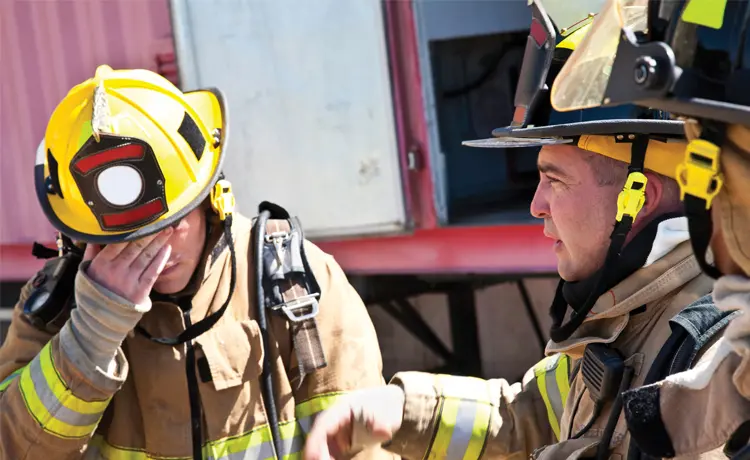Front-line emergency personnel experience many types of calls. Most are routine and usually not distressing, but some disturbing calls can be difficult to overcome and cause critical incident stress reactions.
Critical incident stress (or traumatic stress) begins as an adaptive reaction to a terribly abnormal event. The intense cognitive, physical and emotional arousal drives people to try to cope with the situation. Most resolve their reactions without permanent harm. When unresolved, however, critical incident stress may turn into one or more disruptive and painful conditions, including PTSD.
Give your team the tools they need to manage their stress and recognize the signs of distress in their coworkers.
Coping with Critical Incident Stress
People adapt to demanding circumstances. They have expected, natural and typically healthy stress responses to awful events. Certain severe traumatic events, however, threaten both the physical and mental health of emergency personnel. An unusually intense stress response may interfere with the body’s immune system, rational thinking and emotions.- Severe stress impairs a person’s ability to respond to further challenges.
- Extreme stress disrupts performance and threatens health. It may leave permanent psychological scars if not managed carefully.
Spotting the Signs of Distress
Most emergency response personnel experience intense reactions to certain types of emergency calls, including those involving the shooting of a police officer or the death of a child. Sometimes the reactions are temporary, but in some cases they last a long time.- Unwanted Remembering: Reexperiencing traumatic events can include distressing memories, dreams and nightmares, and physical distress (e.g., heart pounding, shaking).
- Physical Activation or Arousal: The fight-or-flight reaction continues even after the event is over. Common responses include difficulty falling asleep, irritability and hyper-vigilance.
- Emotional Numbness: When a person is overstimulated, his or her emotions often shut down causing difficulty feeling love, anger, sadness or other emotions.
- Avoidance of Trauma-Related Thoughts and Feelings: Some emergency personnel avoid their colleagues. Others avoid places, conversations, thoughts, emotions and physical sensations that might remind them of the trauma.
- Depression: Depression is a feeling of great sadness caused by the loss of important people, objects or sense of well-being.
- Self-Blame, Guilt and Shame: Traumatized emergency personnel may feel guilt about things they did or did not do, or guilt that others died but they survived.
- Interpersonal Problems: Some emergency personnel who have experienced trauma have difficulty in relationships.
- Physical Symptoms and Health Problems: Stress causes headaches, nausea, gastrointestinal distress, rashes and other physical problems.
Critical Incident Stress Reactions Requiring Immediate Corrective Action
If you experience any of these symptoms, seek professional help. And if you see a colleague struggling, reach out. Offer to help with practical needs or finding services. The following symptoms require immediate, corrective action because they threaten health and safety:- Chest pain or difficulty breathing
- Excessive blood pressure
- Collapse from exhaustion
- Unusual cardiac patterns
- Mental confusion and/or disorientation
- Hallucinations, delusions, disordered and racing thoughts
- Severe fear and panic attacks
- Numb, shock-like state
- Exaggerated emotions
- Uncontrolled rage
- Slurred, incoherent, extremely slow or rapid speech
- Violent outbursts
- Suicidal actions
- Continuous rocking motions, facial tremors, body shakes
- Flashbacks
